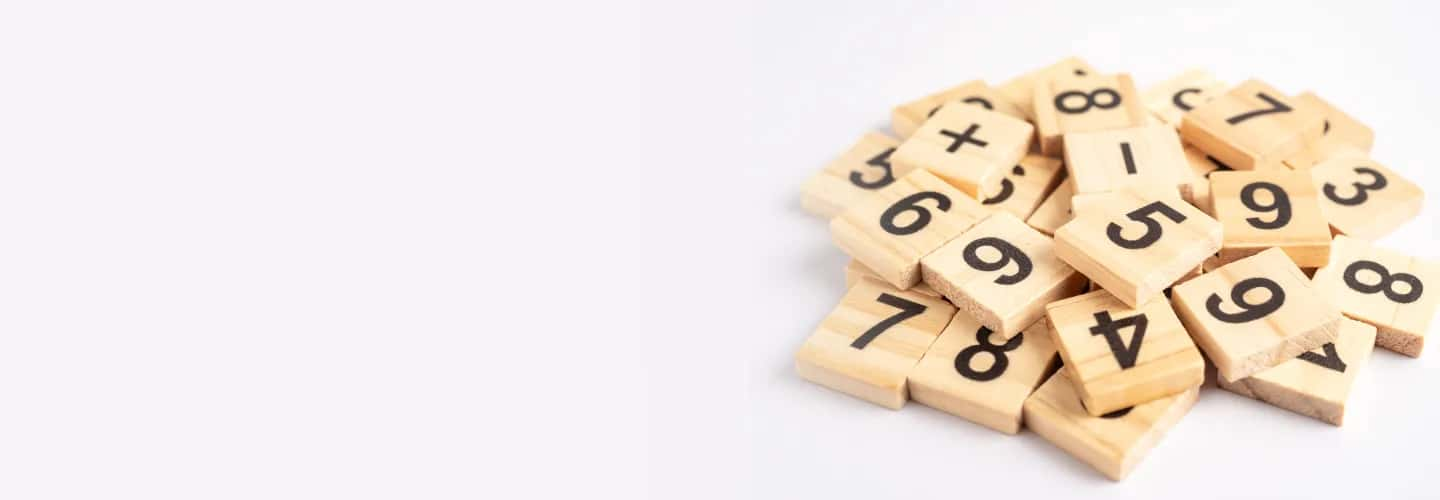
Understanding the Concepts of Number Series
Number series refers to a sequence of numbers that follow a specific pattern or rule. These series can be presented in various formats, such as arithmetic, geometric, or a combination of both. The concepts related to number series are essential in mathematics and logical reasoning.
They involve identifying patterns, predicting the next number, and understanding the underlying rule governing the series.
Here are some of the important number series concepts:
1. Arithmetic Series
An arithmetic series is a number sequence in which the difference between consecutive terms remains constant. Each term is obtained by adding or subtracting a fixed value, known as the common difference, to the previous term.
For Example:
Consider the series: 2, 5, 8, 11, 14, ... The common difference here is 3, and each term is obtained by adding 3 to the previous term.
2. Geometric Series
A geometric series is a sequence in which each term is obtained by multiplying or dividing the previous term by a fixed value, known as the common ratio. In a geometric series, the ratio between consecutive terms remains constant.
For Example:
Consider the series: 2, 6, 18, 54, 162, ... The common ratio here is 3, and each term is obtained by multiplying the previous term by 3.
3. Fibonacci Series
The Fibonacci series is a special sequence in which each term is the sum of the two preceding terms. It starts with 0 and 1, and subsequent terms are generated by adding the two previous terms.
For Example:
The Fibonacci series begins as follows: 0, 1, 1, 2, 3, 5, 8, 13, 21, ... The pattern continues infinitely.
4. Square Series
A square series is a sequence in which each term is obtained by squaring the natural numbers. The terms of a square series follow the pattern of perfect squares.
For Example:
Consider the series: 1, 4, 9, 16, 25, ... Each term is obtained by squaring the corresponding natural number.
5. Prime Series
A prime series is a sequence of prime numbers, which are numbers greater than 1 that are divisible only by 1 and themselves. The terms in a prime series consist solely of prime numbers.
For Example:
Consider the series: 2, 3, 5, 7, 11, 13, ... Each term in this series is a prime number.
6. Harmonic Series
The harmonic series is a sequence of numbers that are the reciprocals of positive integers. Each term in the series is obtained by taking the reciprocal of the corresponding natural number.
For Example:
The harmonic series begins as follows: 1, 1/2, 1/3, 1/4, 1/5, ... The terms in this series approach zero as the natural numbers increase.
7. Quadratic Series
A quadratic series is a sequence in which each term is obtained by substituting natural numbers into a quadratic equation. The terms in a quadratic series follow a quadratic pattern.
For Example:
Consider the series: 1, 4, 9, 16, 25, ... Each term is obtained by substituting the natural numbers into the equation y = x^2, where x represents the position in the series.
8. Cube Series
A cube series is a sequence in which each term is obtained by cubing the natural numbers. The terms in a cube series follow the pattern of perfect cubes.
For Example:
Consider the series: 1, 8, 27, 64, 125, ... Each term is obtained by cubing the corresponding natural number.
9. Arithmetic-Geometric Series
An arithmetic-geometric series is a combination of arithmetic and geometric progressions. The terms in this series alternate between arithmetic and geometric progressions.
For Example:
Consider the series: 1, 2, 4, 7, 11, ... The terms 1, 4, 11 form an arithmetic progression, while the terms 2, 7 form a geometric progression.
10. Recursive Series
A recursive series is a sequence in which each term is defined based on one or more previous terms. The value of each term depends on a recursive formula or rule.
For Example:
The Fibonacci series mentioned earlier is a recursive series, where each term is the sum of the two preceding terms.
FAQsFAQs
Why is understanding the concepts of number series important?
Understanding the concepts of number series assists in:
Addressing the number series questions quickly and accurately.
Solving different types of questions on number series topic.
Is it possible to solve number series problems without knowing the concepts?
Yes, it's possible to solve number series questions without understanding the concepts. However, experts advise that comprehending the fundamentals is essential to address the number series questions quickly and accurately.
What is the right way to learn number series concepts?
The foundation of mathematics is concepts, and understanding them is critical to boosting your performance in the logical reasoning section. Visualising the number series concepts using real-life examples is the best approach to learn the number series concepts.

